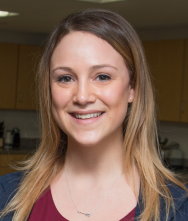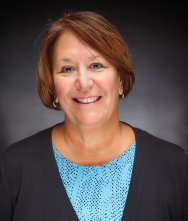Master of Occupational Therapy Program at Governors State University
Governors State University established the Department of Occupational Therapy (OT) in
1996 and has continued the long tradition of providing quality, reputable, and affordable
educational opportunities to a diverse student body. We are proud of the long-standing
history of producing knowledgeable, competent, and skilled occupational
therapists to meet the healthcare needs of all clients.
| Date | Time | Location |
| July 2, 2025 | 5:30 p.m. | Virtual |
| August 6, 2025 | 5:30 p.m | Virtual |
| September 3, 2025 | 5:30 p.m | Virtual |
| October 1, 2025 | 5:30 p.m | Virtual |
| November 5, 2025 | 5:30 p.m | Virtual |
| December 3, 2025 | 5:30 p.m | Virtual |
Click here to join the meeting when time
Meeting ID: 250 232 167 138
Passcode: bF9Kb3um
Microsoft Teams Need help?
Click to learn more about our program attend our monthly Information Sessions
Occupational Therapy as a Career
Governors State University’s Master of Occupational Therapy(MOT) program prepares the Occupational Therapist to build a career as a caring and thoughtful professional therapist. You will guide clients and help them regain their independence in everyday life activities at home, work, school, and in the community through responsive, evidence-based treatments. Through education and mentorship, the expert, caring, supportive faculty will help guide you along the way. The MOT program and faculty place a strong emphasis on advocacy, communication, critical reasoning, leadership, and lifelong learning—skills and activities that distinguish our graduates and empower them to become highly effective professionals. Occupational therapists come from a variety of backgrounds, but they all have one thing in common: a mission to help change lives.
Reach Your Career Goals
Occupational Therapy is consistently ranked among the top professions in the United States. In 2017 alone, it was included in rankings by Forbes, and U.S. News and World Report, among others. Data collected in 2024, reported that the median annual salary of Occupational Therapists in Chicago, IL is at $103,362 with an average range of $86,771 -$121,028(salary.com). Employment of occupational therapists is projected to grow by 16% from 2019 to 2029, much faster than the average for all occupations.
Accreditation
The Governors State University Master of Occupational Therapy program is accredited by the Accreditation Council for Occupational Therapy Education (ACOTE) of the American Occupational Therapy Association (AOTA), located at 7501 Wisconsin Avenue, Suite 510E, Bethesda, MD 20814. ACOTE’s telephone number c/o AOTA is (301) 652-6611 and its web address is acoteonline.org. In May 2019, the program received accreditation for 10 years until 2028.
Program Outcomes
Graduates of the program will be eligible to sit for the national certification examination for the occupational therapist administered by the National Board for Certification in Occupational Therapy (NBCOT). After completing this exam, the graduate will be registered as an occupational therapist (OTR). In addition, all states require licensure to practice; however, state licenses are usually based on the results of the NBCOT certification examination. A felony conviction may affect a graduate's ability to sit for the NBCOT Certification Exam and/or attain state licensure.
PROGRAM/STUDENT OUTCOMES FOR THE PAST 3 CALENDAR YEARS
Year of Graduation/
Year of NBCOT | Number of Students
Matriculated/Graduated | Graduation Rate |
| 2024 | 15/15 | 100% |
| 2023 | 28/28 | 100% |
| 2022 | 24/24 | 100% |
| Totals | 67/67 | 100% |
Program results from the National Board for Certification in Occupational Therapy (NBCOT) Exam can be found online at: 
COST OF ATTENDANCE
| Master of Occupational
Therapy | Fall | Spring
| Total |
| Tuition | $12,405.00 | $ 12,405.00 | $ 24,810.00 |
Mandatory Fees
| $2,208.00 | $2,208.00 | $4,416.00 |
Books, Course Materials,
Supplies, and Equipment
| $500.00 | $500.00 | $1,000.00 |
OT Program Fees : Subscriptions, tools,
Program & Fieldwork Requirements | $500.00 | $500.00 | $1000.00 |
| Transportation | $1,000.00 | $1,000.00 | $2,000.00 |
Living Expenses
| $6,255.00 | $6,255.00 | $12,510.00 |
Personal Expenses
| $1,000.00 | $1,000.00 | $2,000.00 |
Federal Loan Fees
| $110.00 | $110.00 | $220.00 |
| Total | $23,978.00 | $23,978.00 | $47,956.00 |
All United States residents pay the same amount as Illinois residents
*Note: Tuition and fees are subject to change.
HRSA-Scholarship for Disadvantaged Students Grant
The MOT program was recently awarded a Scholarships for Disadvantaged Students Grant through the Health Resources & Services Administration. The award of $2.688 million will be dispersed over five years, beginning with the incoming Fall 2020 semester. Qualifying students will receive financial awards every semester through the year 2025. For questions regarding the application process, please contact Dr. Erin Simpson at esimpson2@govst.edu
Testimonials

"My experience in the MOT program at GovState has been amazing and incomparable. Our small class sizes ensure a quality learning experience, and the professors are truly invested in us—they go to great lengths to make sure we understand and are competent with the information needed to succeed and grow. We take part in community experiences where we apply our skills and knowledge in the community. The experiences are eye-opening and rewarding, as well as allow a learning experience that could never be simulated in a classroom"
Lauren Green, Occupational Therapy Student Alumni

"Our well-established Occupational Therapy program is fueled by faculty members who are passionate about OT, invested in student learning, and connected to the community; their strong research agendas and collaborative research with students are integrated with community partners. In addition, our facilities, including our state-of-the-art ADL (Activities of Daily Life) lab provide students with opportunities to practice providing care for clients in a setting that is authentic to their future careers."
Caren Schranz, Professor Emeritus of Occupational Therapy and Associate Professor
/grad.jpg?n=9348)
Meet Our Faculty
Click here to view a list of our faculty members.
/occupational-ther.jpg?n=1651)
MOT Curriculum and Required Preparation
Click hereto learn more about our curriculum and preparation requirements.
/online.jpg)
How to Apply
Click here to review our application requirements.
/addiction.jpg)
Mission Statement
Click here to read the Department of Occupational Therapy Mission Statement.

Student Resources
Click here to explore additional Student Resources.
/215x115_0044_Layer 120.jpg?n=4584)
Program Accreditation and Outcomes
The Occupational Therapy program has full accreditation by the Accreditation Council for Occupational Therapy Education (ACOTE) and the American Occupational Therapy Association (AOTA).

MOT Special Admissions Requirements
Click here to learn more about our special admissions requirements.

Doctor of Occupational Therapy Program
Learn more about our Doctor of Occupational Therapy program here.